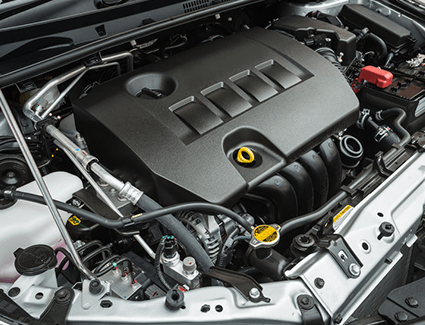


Should I Warm Up My Engine in Winter? Find Out in Salem, Oregon

For years, drivers were taught to let their vehicles idle and warm up before driving on cold winter mornings, especially in regions with harsh winters. This practice was rooted in older technology and became ingrained in the minds of car owners everywhere. However, with the advances in modern automotive engineering, this advice is no longer applicable to most vehicles on the road today. Warming up your engine for long periods before driving may do more harm than good, especially if you're driving a modern Chevy equipped with the latest fuel-injection technology. In Salem, OR, where winter temperatures can drop significantly, it's essential to understand how to care for your engine properly, and that begins with knowing whether warming up your car is still necessary.


Why Warming Up Your Engine Isn't Necessary Anymore
Modern vehicles, including all newer Chevrolet models, come with fuel-injected engines that are equipped with advanced sensors designed to monitor and adjust the air-fuel ratio, even in cold weather. These sensors ensure your engine starts smoothly by providing the optimal fuel mixture to compensate for the lower temperatures, allowing your vehicle to be ready for driving within just seconds of starting. Extended idling, which many drivers believe is necessary, can actually have negative effects on your engine's components. For instance, prolonged idling can cause the oil that lubricates vital parts like the pistons and cylinders to thin out, leading to increased friction and wear. To avoid unnecessary engine damage, it's best to let your vehicle run for only 10-15 seconds before driving. As long as you drive gently during the first few minutes, your engine will warm up naturally and perform as intended.
The Origins of the Warming Up Myth
The advice to warm up your engine comes from the era of carbureted engines, which were common in vehicles built before the mid-1990s. Carburetors, unlike today's fuel-injection systems, required time to mix air and fuel properly, especially in colder weather. If a carbureted engine wasn't allowed to warm up sufficiently, it could stall or struggle with performance. This is where the myth of warming up vehicles began. While this advice was sound for older cars, it no longer applies to the vast majority of vehicles on the road today, including modern Chevrolets. Unless you're driving a classic Chevy or another vehicle from before the fuel-injection era, you can confidently start your car and begin driving after a short idle time.
At Capitol Chevrolet in Salem, OR, we are committed to helping you care for your vehicle through every season. Our experienced service team is here to provide you with the expert advice and maintenance your Chevy needs to thrive in winter weather. Visit us at 2855 Maple Ave NE for all your winter car care needs, including routine maintenance and vehicle inspections to ensure your Chevy is running smoothly all winter long.
Contact
2855 Maple Ave Ne
2855 Maple Ave Ne
Salem, OR 97301
- Contact: (503) 877-2943

